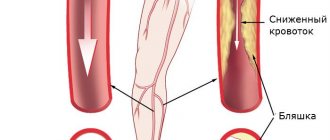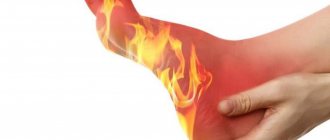Reasons for the development of xerostomia
Saliva, being a lubricant, makes chewing and swallowing easier and painless.
It also ensures the cleanliness of the mouth and teeth, prevents inflammation and accelerates the healing process of wounds and cracks.
Dry mouth, pain when swallowing, burning in the throat and tongue - these and many other symptoms in medicine are called xerostomia. It occurs when salivation stops or partially decreases.
Xerostomia is not a separate disease. It is one of the symptoms that cannot be ignored.
Causes
During the day, the salivary glands should normally secrete at least 1.5 liters of secretion. If for some reason the outflow of saliva decreases or its composition changes, then the person complains of unpleasant symptoms:
- viscosity;
- increased feeling of thirst;
- tongue burning or tingling;
- unusual taste;
- dry mucous surfaces;
- pain and susceptibility to minor injuries (cracks);
- difficulties in pronouncing certain sounds;
- deterioration in the quality of chewing food;
- as a result – dysfunctions of the gastrointestinal tract;
- the sensation of food taste changes;
- people around feel an unpleasant odor;
- the voice seems to become hoarse;
- caries, gingivitis, etc. often occur.
When dry mouth does not go away for a long time, and nothing is done about this condition, then it will affect the functioning of other organs - teeth, gums, stomach, there will be a risk of infection, etc.
The causes of dryness are various phenomena, external and internal factors. It is necessary to take into account the objectivity or subjectivity of sensations, whether the symptom is accompanied by other unpleasant signs, and at what period of the day it occurs.
Doctors have noticed that dry mouth is more common in older people. This is a natural result of diseases suffered throughout life, complications, age-related changes in the structure of individual organs, metabolic deterioration, and functional problems of the salivary glands.
Most often, dry mucous membranes are the first sign of dehydration, a lack of fluid in the human body. This happens:
- at high air temperatures;
- if a person sweats a lot;
- after diarrhea or vomiting;
- from massive blood loss;
- with extensive skin damage (burns, frostbite).
Scientists also note an increase in complaints of dry mucous membranes as the general environmental situation worsens. Chronic stress, unbalanced nutrition, physical inactivity, hypoxia - all this affects the condition and functioning of the internal systems of the body, including salivation.
Causes of dry mouth
- Most often, xerostomia is a side effect of taking various types of medications. Older people who are prescribed a large number of medications are more likely than others to suffer from dry mouth.
- Symptom of infection and severe pathologies - HIV/AIDS, hypertension, anemia, stroke, Parkinson's and Alzheimer's disease, mumps, rheumatoid arthritis, Sjögren's syndrome.
- Diabetes. People suffering from this disease are constantly thirsty and often suffer from dry mouth. If the symptom persists, you should check your blood for the level of sugar it contains.
- Chemotherapy and radiation reduce the amount of saliva produced.
- Injured salivary glands - due to operations or improper dental procedures.
- Trauma or surgery that damages the nerves in the head or neck.
- Dehydration of the body due to diarrhea, vomiting, burns, blood loss, increased sweating, high fever.
- Wrong lifestyle – addiction to smoking cigarettes or chewing tobacco.
- Frequent stressful situations and tension.
Dry mouth that occurs systematically can lead to the development of gingivitis - gum disease. In addition, fungal stomatitis, candidiasis, chronic tonsillitis, caries and other diseases of the oral cavity may appear, since a decrease in the amount of saliva produced reduces the effectiveness of protecting the mucous membrane.
You can read more about the causes of bitterness and dry mouth in the following article.
We will tell you how baby teeth are removed in children here.
Can a tooth cause a sore throat? Many people ask this question. You will find the answer at the link.
Poor eating behavior
Drying of the oral mucosa is provoked not only by salty foods, but also by excessively sweet, fatty or spicy foods, that is, any food that requires increased salivation to digest.
Chips, crackers, fish delicacies “for beer” (dried or dried), various sweet bars, lollipops, chewing candies and other “goodies” are considered especially harmful in this sense. These products (in addition to excess salt or sugar) contain flavoring additives that have a negative effect on the functioning of the salivary glands.
What causes morning dry mouth?
Sometimes xerostomia in the morning occurs due to problems with the nasopharynx or digestive tract.
It may also be associated with diseases of other internal organs or systematic pathologies.
However, doctors identify a number of reasons that cause dry mouth, which are in no way related to diseases.
In most cases, this is the result of human actions:
- Excessive consumption of pickles and smoked foods before bedtime leads to dry mouth in the morning, as salt retains moisture during the night.
- Evening consumption of alcoholic beverages, coupled with cigarette smoking, also leads to dryness in the morning. The tongue becomes heavy and clumsy, and pain occurs when swallowing.
- Using an electric heater in the bedroom - the air becomes too dry and the moisture evaporates from it.
- If you drink a lot of tea or coffee during the day, you may experience dry mouth in the morning, as these drinks are diuretics.
- Taking medications, including antihistamines, antifungals, antidepressants, sleeping pills.
If dry mouth is not associated with diseases of the oral cavity and internal organs, then you can get rid of it quite simply - just watch your diet and lifestyle, and also maintain an optimal level of air humidity in the bedroom.
Xerostomia at night
Xerostomia can develop due to a number of reasons.
But in order to accurately identify the problem and promptly eliminate the disease, a medical examination followed by tests is required.
If dry mouth at night interferes with sleep and appears systematically, you need to think about the reasons that cause it.
- Against the background of high air temperature in the bedroom, prolonged vomiting, diarrhea, increased body flushing, large burns and low fluid intake throughout the day, dry mouth may appear at night.
- The mucous membrane dries out due to mouth breathing during sleep. This may be due to the inability or complication of breathing through the nose: deviated septum, runny nose, adenoids.
- Daily intake of a number of medications, including tablets for neurasthenia, hypertension, and anti-allergy drugs.
- Addiction to salty or sweet foods that are consumed at night - sugar and salt draw fluid from the cells, so you feel thirsty at night and the oral mucosa dries out.
- Most people who snore during sleep suffer from nocturnal xerostomia.
- Nervous tension, stress, restless sleep.
- Intoxication - tobacco and alcohol products - causes thirst and contributes to dry mouth.
- If the air in the room is too dry, then nocturnal xerostomia can bother even those who have no problems breathing through the nose.
Dry mouth can be not only a symptom of any disease or disorder . It accompanies some changes in the body that occur quite naturally and are absolutely normal.
Why does it dry out while you sleep?
The appearance of dry mouth in the morning should not be scary. When a person sleeps, the glands practically do not produce saliva, and the facial muscles weaken. Not everyone, but many people, have their mouths open slightly. Air enters the mucous membrane, which is practically not washed by saliva. As a result, you may feel dry. The duration of the phenomenon is short: usually after washing, all unpleasant symptoms disappear.
The microclimate in the bedroom also matters. If it is too warm and dry, the tissues in your mouth dry out faster and more severely. That is why it is recommended to place the bed at a distance from heating devices.
We suggest you familiarize yourself with Dry mouth during early pregnancy
Nocturnal xerostomia is explained in the same way. But the symptom can also occur against the background of a serious disease of the nervous system. When the salivary glands stop receiving signals that the oral cavity needs to be moistened. Therefore, the dryness that haunts you from night to night and prevents you from falling asleep should be alarming.
Xerostomia during pregnancy
If the expectant mother follows the drinking regime and consumes the required amount of liquid, then during pregnancy there should be no dry mouth.
However, there are a number of factors that cause the appearance of xerostomia in pregnant women:
- Increased air temperatures in the summer months lead to increased sweating, which causes this syndrome.
- It happens that, against the background of dry mouth, pregnant women develop a sour metallic taste. This suggests the possibility of detecting gestational diabetes. You need to see a doctor, take several blood tests for glucose and undergo a glucose tolerance test.
- During pregnancy, a woman experiences the need to urinate frequently, which causes rapid dehydration of the body without timely replenishment. This may cause dry mouth. To prevent this unpleasant syndrome, it is necessary to monitor the amount of fluid consumed.
- The expectant mother should monitor her diet - you should not eat salty, sweet and spicy foods in large quantities, as they contribute to the removal of fluid from the body, which can lead to xerostomia.
- An excess of magnesium, as well as a deficiency of potassium in a woman’s body, can cause dry mouth.
Xerostomia during pregnancy is one of those phenomena that causes inconvenience. To avoid these troubles, you need to carefully monitor what the expectant mother eats and drinks (in what quantities).
Treatment
If the morning symptom does not appear so often and for physiological reasons, then there is no need to worry. Doctors allow home therapy using simple means. To relieve dry mouth, the patient should take the following measures:
- eat candy or chew gum;
- do not eat a lot of sweet or salty foods;
- drink your daily amount of water;
- monitor oral hygiene;
- try to breathe through your nose;
- lubricate lips with balm;
- eliminate bad habits;
- use an ionizer in the house or do wet cleaning.
Since a symptom can be one of the indicators of various pathologies, you need to closely monitor other signs. If a person’s body begins to experience frequent dry throat, dizziness, stomach pain or other symptoms, then an urgent need to consult a doctor. Treatment can be prescribed only after diagnosing the disease.
If dryness in the oral cavity does not indicate various pathologies, then you can use traditional therapy recipes. Doctors recommend using the following tinctures to eliminate symptoms:
- flax seed;
- calendula flowers;
- marshmallow root.
You also need to add fruits and vegetables to your diet. They will help cope not only with dryness, but also eliminate bitterness in the mouth.
Dryness around the mouth is a sign of cheilitis
As mentioned earlier, dry mouth cannot be an independent disease, but only a symptom accompanying the pathology. Among such diseases it is worth highlighting cheilitis. This is an inflammatory process that occurs on the mucous membrane of the oral cavity or the red border of the lips.
Symptoms:
- Swelling of lips, cracks, peeling.
- In the corners of the mouth, “jams”—deep cracks—form.
- Inflammation of the red border of the lips, clear visualization. In a healthy person it is practically invisible.
- Formation of yellow or gray crusts on the lips, small blisters.
If, along with systematic dryness around the mouth, the above symptoms appear, you should immediately consult a doctor - a dermatologist or dentist.
Cheilitis can be a symptom of a disease of internal organs, or as an independent manifestation of pathology.
Associated symptoms
Most often, xerostomia is combined with other symptoms:
- Change in taste of drinks, food;
- Stickiness, feeling of gluing of the oral cavity;
- Frequent urination (polyuria);
- Flatulence, bloating;
- Thirst;
- Bitterness in the mouth, metallic taste;
- The appearance of an unpleasant, fetid odor from the oral cavity;
- Hoarseness of voice;
- Seizures (cracks) in the corners of the mouth, the appearance of a bright border around the lips;
- Constipation;
- Itching of the skin;
- Dizziness;
- Dryness in the nasal cavity, throat;
- Slurred speech;
- Dryness and burning of the tongue, it itches, becomes hard, red;
- Nausea, vomiting;
- Hyperthermia (increased temperature);
- Diarrhea;
- Abdominal pain;
- Sudden weight change in any direction.
Constant thirst and dry mouth - causes
If dry mouth is accompanied by constant thirst, then this is a very serious reason to consult a doctor, since these symptoms are the first sign of diabetes.
Along with them, small ulcers may appear on the skin, causing itching and the need for frequent urination.
In this case, it is necessary to take a blood test for glucose as soon as possible and identify the cause of such symptoms.
Timely contact with doctors will allow you to begin prompt treatment.
Drugs that affect the functioning of the salivary glands
Severe dry mouth in the morning can occur while taking certain medications. These are mainly drugs that are prescribed by a doctor in case of treatment:
- mental illness, depression;
- infectious diseases or allergic manifestations;
- oncological diseases;
- disruptions in the digestive system;
- heart diseases.
Some therapies may also cause dry mouth. Xerostomia is especially evident in patients after chemotherapy procedures.
Other symptoms of dryness
Xerostomia in rare cases is an isolated symptom. As a rule, along with dryness, the following appear in the mouth:
- weakness;
- white coating on the tongue;
- bitterness in the mouth;
- nausea;
- dizziness.
Weakness
It may be quite natural to accompany xerostomia, because this symptom is an indicator of the presence of some disease.
The body is weakened, dehydrated, the immune system is fighting the emerging disease, so a huge amount of vital energy is spent during the day.
Therefore, it is not surprising that a person suffering from xerostomia feels weakened and depressed.
White tongue, bitter taste in the mouth, nausea
White coating on the tongue, bitterness in the mouth, nausea, belching, heartburn - all these are symptoms of diseases of the gastrointestinal tract. They may indicate a number of pathologies:
- Diseases of the gallbladder or dyskinesia of the bile ducts. Sometimes they appear with gastritis, pancreatitis, cholecystitis, duodenitis.
- If xerostomia occurs along with a metallic taste and bitterness in the mouth, then there is a high probability of gum inflammation. A burning tongue may occur.
- Neurotic disorders - amenorrhea, neuroses, psychoses.
- If bitterness and dry mouth are accompanied by pain in the right side, then this could be kidney stones or incipient cholecystitis.
- Dryness and bitterness in the mouth appear after using antihistamines and numerous antibiotics.
- White or yellowish plaque spots on the tongue, burning, bitterness and dry mouth are a sign of thyroid disease. Due to changes in the motor function of the biliary tract, the amount of adrenaline released increases, which leads to spasms of the bile flows.
- Nausea with xerostomia indicates gastritis of the stomach, which also appears with heartburn and pain in the central part of the abdomen.
Wisdom tooth removal is a mini operation. Swelling after wisdom tooth removal is normal, but the swelling should not last long.
You can read types of ointments for toothache and patient reviews about their use in this topic.
Dizziness
Dizziness that accompanies dry mouth indicates low blood pressure (hypotension).
Hypotonic patients suffer from frequent dizziness and morning xerostomia. In the evening they are overcome by weakness and lethargy.
Due to impaired blood circulation, the functions of glands (including salivary ones) and organs change. The result is constant headaches, nausea and dizziness.
If such symptoms occur, you should immediately contact a specialist for examination and immediate treatment.
Dry mouth can be either a one-time occurrence or a systematic one. To avoid it, you just need to monitor your lifestyle, nutritional and drinking regimes. And if this phenomenon becomes more frequent, consult a doctor immediately.
What gastrointestinal diseases may this indicate?
Xerostomia occurs with the following gastrointestinal diseases:
- Pancreatitis (inflammatory process in the pancreas);
- Gastritis;
- Irritable bowel syndrome;
- Duodenitis (infection of the duodenum);
- Dyskinesia (motor function disorder) of the biliary tract;
- Cholecystitis;
- Intestinal dysbiosis.










